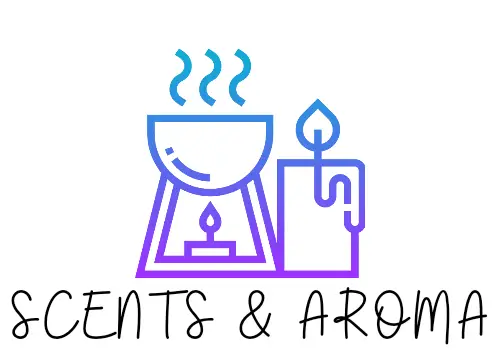Essential oils do not expire the way food does, however, they go bad overtime, but this could take years. Oxidation, light, and heat, are the main factors that cause the gradual change and deterioration in smell, color, consistency, and effectiveness of essential oils, leading to its expiration.
In this article, we will see if essential oils expire, the reasons why essential oils expire, signs that essential oils have expired, how to preserve essential oils and the shelf life of some common essential oils.

DO ESSENTIAL OILS EXPIRE OR GO BAD?
It is more appropriate to say that essential oils go bad. This is because, unlike food, they do not spoil but their chemical composition changes with time. However, this process takes a really long time – a matter of years, so if you plan to use up your essential oils in less than a year, you don’t have to worry about them going bad.
When essential oils go bad, their chemical composition changes because of some factors, and when this happens, these oils lose their effectiveness and therapeutic benefits. However, it is unclear whether they are dangerous to use at this point.
While some people feel that expired essential oils can still be used for some purposes, it’s best to avoid using them on the skin as this might cause skin reactions. What’s the point in using them when they have lost their potency?
The same goes for fragrance oils as well which can also expire just like essential oils.
WHY DO ESSENTIAL OILS EXPIRE?
There are three main reasons that essential oils go bad.
- OXIDIZATION: Essential oil oxidation or oil rancidity occurs when oxygen enters the oil and slowly changes the chemical composition as electrons are lost when oxygen is gained. Unfortunately, oxidation is inevitable and as soon as you open that bottle of oil, it begins. However, the good news is that this process is very slow and could take years.
- HEAT: Heat is another factor that can cause essential oils to go bad. Ideally, essential oils should be kept at 35-38 degrees Fahrenheit. Heat will slowly destroy the chemical composition of the oil and make it go bad (these oils are concentrated chemical compounds).
- LIGHT: Yes, even essential oils don’t like UV rays. When these oils are exposed to light, especially from the sun, their chemical compounds become compromised. Did you notice that essential oils come in dark bottles? It is to protect them from these light rays.
For the same above reasons it is common for candles and wax melts to also expire so keep reading to learn how to prolong it.
WHAT ARE THE SIGNS THAT YOUR ESSENTIAL OIL HAS EXPIRED?
There are a couple of telltale signs that will show that your essential oil has gone bad. That aside, some essential oil brands come with expiration dates which will help you note when they are expected to go bad. However, this doesn’t mean that your essential oil cannot go bad before the given expiration date, especially when you expose them to conditions like heat and light, that will quicken the process.
Therefore, it is important to look out for telltale signs that your essential oil is expiring. Here are the most common signs:
- Change in Colour: The color of some essential oils could change when they have expired, most likely, they will take on a darker color.
- Change in Scent: The scent of essential oils could change too. You will easily notice the difference between the initial smell and the rancid smell if the essential oil is high quality. If your essential oil smells unpleasant or has a different aroma than before, it has gone bad.
- Change in Consistency: The consistency of the oil could change too. If it becomes thicker or lighter, it could be that it has expired.
- CLOUDY LOOK: This is peculiar to citrus oils. When they expire, they look cloudy instead of clear.
Although it might take time before these signs show up, they will eventually do so. All of these signs don’t apply to all essential oils. While one might have a different scent, another might change consistency. The general sign however is their loss of potency, though this is quite difficult to notice.
HOW CAN YOU PRESERVE THE SHELF LIFE OF ESSENTIAL OILS?
If you want your essential oils to stay longer before going bad, you need to take some precautions.
- Cover the lid properly (the lid should be airtight) and don’t leave them open for long. Remember oxygen causes oil rancidity? The longer you leave the oil open, the more oxygen gets in and oxidizes the oil.
- If you know that you wouldn’t be able to use essential oils quickly, you can separate them into different dark jars. This will prevent oxygen from entering the whole bottle content.
- Buy essential oils in dark containers. Most essential oils come in dark amber-colored glasses because these dark containers prevent the oil from coming in direct contact with light.
- Do not keep oils close to light sources or in sunny places like the window. You can store them in boxes in cool and dark places.
- Keep essential oils at 35-38 degrees Fahrenheit. Always store them in cool places. You could even store them in a refrigerator but make sure you place them in a thick plastic bag so the smell wouldn’t get into your food. If possible, get a separate refrigerator for essential oils (if you have that much to store). However, the temperature of the refrigerator should be between 5-10 degree celsius.
SOME COMMON ESSENTIAL OILS AND THEIR ESTIMATED SHELF LIVES
I have listed below some of the more commonly used essential oils and next to them you will helpfully see their usual expiration time or shelf life.
| Essential oil type | Shelf life of essential oil |
| Citrus oils like lemon and orange oil | 1 year |
| Rose oil | 2 – 3 years |
| Rosemary oil | 4 years |
| Clove oil | 3 years |
| Eucalyptus oil | 1 year |
| Tea tree oil | 2 years |
| Ylang Ylang | 4 – 6 years |
| Peppermint oil | 4 years |
| Vetiver | 6 years + |
| Sandalwood | 6 years + |
| Patchouli | 8 years + |
CONCLUSION
Essential oils stay for years, but because of natural processes like oxidation, they eventually go bad over the years. While some have 1-2 years shelf lives, some essential oils like sandalwood can stay for many years.
To get the best out of essential oils, get high-quality essential oils and use them within a short time. Also ensure you store them properly, away from light and heat. However, If your oil eventually goes bad, it is best you throw it out because it could have negative effects.
- Can You Put Perfume In A Humidifier? (Read First) - September 17, 2022
- Can You Put Essential Oil In A Steam Mop? (Safety Advice) - September 17, 2022
- How To Make Lavender Oil At Home ( Candles And Diffusers) - September 9, 2022

